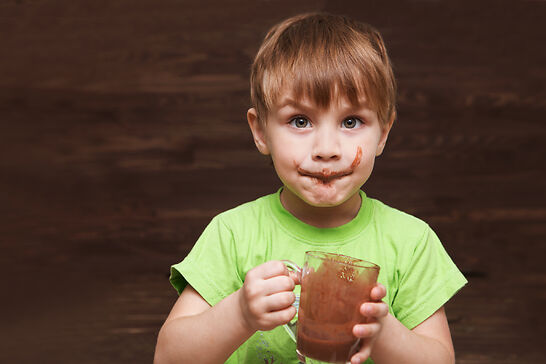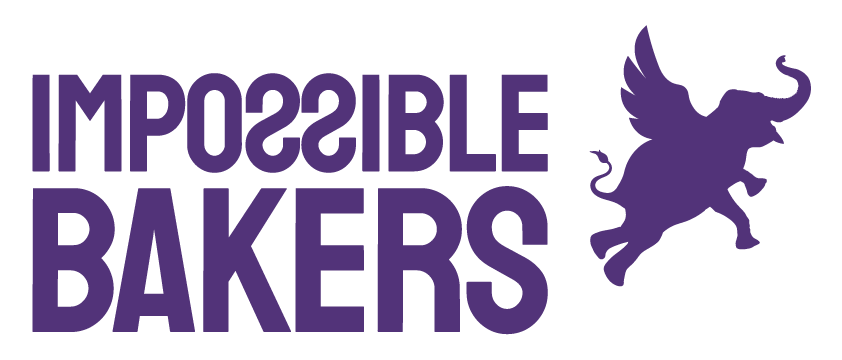THE SWEET POISON
Refined sugar in children's diet
Consuming more than four pieces of ultra-processed foods a day is associated with a 62% increase in the risk of mortality. This is the data provided by the British Medical Journal on the consumption of this type of products in Spain and that sets off all the alarms. The most difficult thing of all is facing this pandemic, because it is not only industrial pastries, but also daily consumption foods that have a high sugar content.
To give you an idea, even the most innocent products, such as yogurt, have a high sugar content. This does not only happen in Spain, in other countries such as Great Britain surprising figures are also recorded. There is an analysis carried out by British researchers from the Universities of Surrey and Leedsde, in which more than 900 yogurt brands were the target of study. Only 9% were classified as low in sugar, that is, containing less than five grams of sugar per 100 grams. The figures are more alarming when it comes to children's nutrition: only 2% of those yogurts intended for children's consumption are categorized as low in sugars.
Ironically, recommendations for sugar consumption in children point to a consumption that does not exceed 25 grams per day, which would be equivalent to about 100 calories or six teaspoons. A challenge that could hardly be met, since two yogurts for children's consumption easily reach 22 grams of sugar. That is why we choose to reduce the presence of sugars as much as possible, not only in products that include dairy, but in the entire catalog.
Experts warn about the lack of awareness about sugar consumption, something very common in Spain. This is reflected by the Spanish Society of Endocrinology and Nutrition and, they add, that the lack of legislation is one of the big problems when we talk about hidden sweeteners.
Children's snacks: the paradise of refined sugar
Yogurt is not the only food that may seem innocent to us. The juices that accompany children's snacks and breakfasts, which are usually marketed with “no added sugar” labels, are a complete trap. Behind them, in the composition, they usually have some sweetener hidden under technical names. Maltitol or sucralose are two of the many names for these sweeteners. In the long run they end up significantly damaging their digestive system and generating much more insulin resistance.
Eliminating these types of sugars or sweeteners does not mean that we stop eating sweets. We can prioritize other types of sweeteners with much less impact on our body. This is the case of Erythritol, the most precious sweetener on the market due to its non-existent glycemic peak and zero caloric intake . In addition to having a powerful sweetening power, it is the best ally for diabetics.
Children's breakfast , which usually includes cookies, cereals or chocolate-related products, is even more inundated with sugar than adult breakfasts. The evidence is provided by Children magazine, which shows that food advertising for children in Mediterranean countries exceeds the recommended average sugar content. The little ones eat 36.2% of these sugars, a figure that exceeds by far (10.2%) that of adults.
Offering sugar to the little ones in the house, without being aware of it, is common. Therefore, we recommend looking carefully at the ingredients, nutritional values and components of those snacks that we include in our children's diet. Prioritize those that have the minimum amount of carbohydrates and, therefore, the minimum amount of sugars and, also, that contain the maximum of natural ingredients.
We recommend some of our healthy products to include in the diet of the little ones in the house and as an alternative to the sugary products on the market: milk breads (with and without chocolate), Molacao and Fanticao .
If your children are one of those who don't finish their breakfast on time... you can prepare their breakfast to go with the trendiest mixer on the market. And if you want it all at once, you can get the mixer along with the Molacao and 6 units of Fanticaos at a reduced price with the Breakfast Pack .
This is how sugar affects the little ones
The WHO warns about the danger of high sugar consumption, since it can cause, in the case of babies, difficulty in the development of their baby teeth. Furthermore, this will cause a clear preference for the consumption of sweets in the future, something that will make it easier for them to develop diseases related to obesity.
In a matter of a decade, childhood obesity has become a public health problem, as analyzed by the medical journal par excellence, The Lancet , it already affects more than 120 million boys and girls around the world.
How do we avoid falling into temptation?
The precursor to diseases related to diabetes, hypertension, obesity or depression is sugar addiction . The more sugar you consume, the higher the glycemic peak will be and our body will ask for more and more food.
Reducing the presence of sugar in our intake is essential to increase our daily performance and improve our health. This can be achieved progressively, replacing products with high sugar content with those with natural ingredients and low added sugar content.
Another example is adopting low-carb diets . These move away from consuming a high amount of carbohydrates to reduce the intake of those sugars that are not found naturally in products.
Furthermore, focusing on other macronutrients, such as healthy fats, makes our insulin levels much better regulated, avoiding glycemic peaks and significantly reducing the insatiable hunger caused by eating too much refined sugar.
So we encourage you to leave this comfort zone so that the little ones in the house can discover another type of diet, much healthier and where pleasure is more than guaranteed. It's all benefits!

OTROS ARTICULOS RELACIONADOS
Vivir sin gluten (y con sabor): un homenaje a todas las personas celíacas
Por un poco de azúcar no pasa nada... ¿Seguro que no pasa nada?
Diabetes Tipo 1: Una visión integrativa de la alimentación infantil
Alzheimer's: diabetes of the brain
Your Intestinal Microbiota: Stress, Nutrition and Digestive Balance
The best books for your health
Control your glucose, protect your heart
Intermittent fasting: what it is, what it is based on and what are its benefits
Carbohydrates, two sides of the same molecule
Essential amino acids: what they are, what they are and why we need them
How to take care of our immune system?
Sugar and the diabetes pandemic
Processed and ultra-processed in baby food
Back to routine
Summer essentials
All about the Impossible Diet
Our favorite books
How to get back into Ketosis?
Sugar-Free & Low-carb: real health
Woman and low-carb diet
How do I know if I am in ketosis?
Erythritol vs Sugar
Keto and fasting
Foods allowed and not allowed on the Keto diet
Benefits of the Keto Diet vs. other diets
What is the Keto or Low Carb diet?
Read more

All about the Impossible Diet
We tell you what our Impossible Diet consists of. Today, May 6, is the International Day without diets... and it is curious, because the month of May is precisely the month of the year in which ...
Read more
Summer essentials
Eating healthy should be understood as a lifestyle. This way, when summer arrives, your diet continues to be an ally and not a challenge. Having a good relationship with food is essential. When ...
Read more



